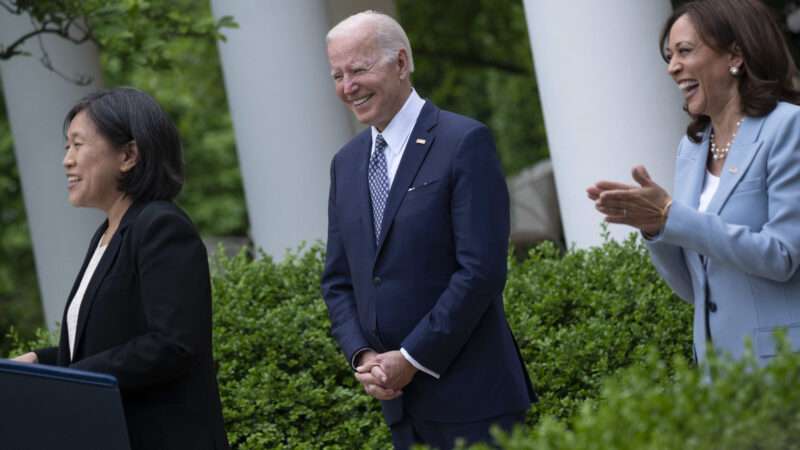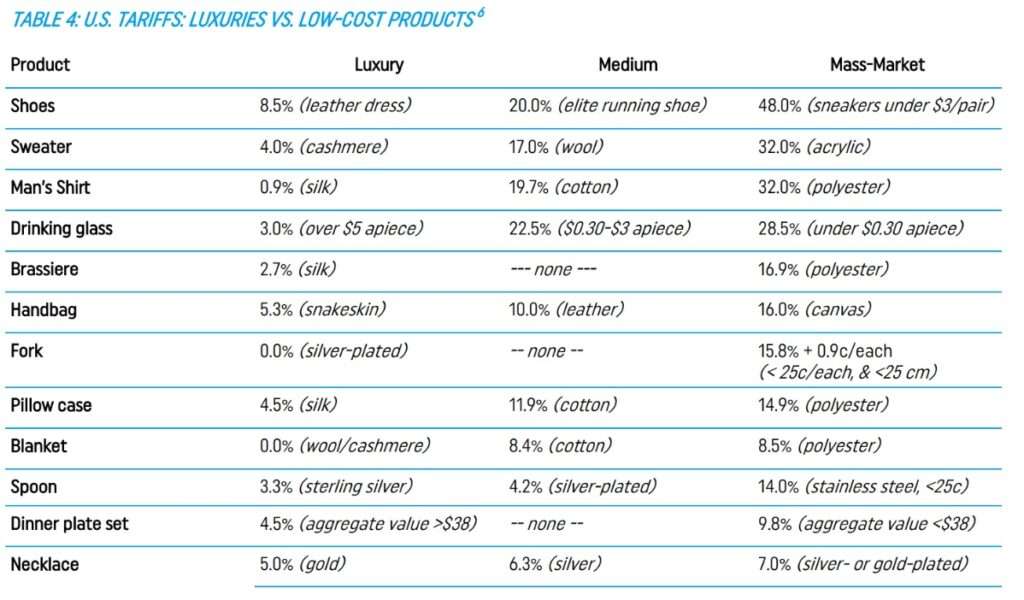
If "equity" is the central principle guiding the Biden administration's trade policies, you wouldn't know it by looking at what has been done—or, rather, hasn't been done—in the past 18 months.
Still, that's what U.S. Trade Representative Katherine Tai claims. In a tweet on Wednesday, Tai wrote that Biden is taking a "whole-of-government approach to advancing equity."
"Equity is also central to our trade and economic strategy to create sustainable growth that is equitably shared," she wrote. "Addressing the challenges to communities of color is vital to that strategy."
If that were merely a big pile of progressive pablum, it would be easy enough to ignore. But it's also objectively inaccurate. If "equity" were the prime concern of the Biden administration, it would have long ago disposed of the tariffs imposed by former President Donald Trump on steel, aluminum, and thousands of other products. Those tariffs are nothing more than taxes—and taxes that fall most painfully on people who can least afford to pay them.
And if the Biden administration truly cared about equity, it wouldn't have stopped there. As research from the Progressive Policy Institute (PPI), a left-leaning think tank, has shown, tariffs of all kinds are regressive taxes that hike costs for consumers and make it particularly difficult for poorer households to afford basic goods.
Eliminating many tariffs that serve little purpose "would ease financial burdens in a small but real way for American low-income and minority workers and their families, helping to raise their living standards without intensifying competitive pressure," Ed Gresser, the PPI's vice president and director for trade and global markets, wrote in a report published in April.
Trump's tariffs have contributed to inflation and helped to artificially inflate the cost of everything from appliances to housing. About two-thirds of all imports from China are now subject to tariffs when they enter the United States, with the average tariff being 19.3 percent. That's six times higher than the average tariff on Chinese-made imports before Trump's haphazard trade war began. That's certainly not helping poorer Americans improve their standard of living.
But, as Gresser points out, other aspects of the U.S. tariff code are also to blame for imposing regressive taxes on poorer Americans. Under the "Most Favored Nation" (MFN) system of tariffs that are applied to imports from countries with which the U.S. does not have a specific trade deal, many common consumer goods are subject to higher tariffs than their luxury alternatives. Stainless steel spoons are tariffed at a much higher rate than far more expensive sterling silver spoons, for example, and cheap sneakers are charged a tariff more than five times higher than leather dress shoes.

"This skew," Gresser writes, means that America's system of tariffs is not only "regressive, but actually discriminatory against the poor."
For months, we've been treated to headlines promising that the Biden administration is considering lifting Trump's tariffs. In June, administration officials told The New York Times that lifting tariffs might reduce inflation by a quarter of a percentage point—even though independent studies suggested the effect could be greater. Yet nothing was done, even after Biden promised that corralling inflation was his "top domestic priority."
When Biden has taken action on tariffs, he's maintained Trump's strategy. Tariffs on solar panels and their component parts that were set to expire this year were extended by an executive order Biden issued in February. That's despite the fact that Biden's solar panel tariffs will make it more difficult for the country to meet Biden's climate goals.
Now, Tai is claiming that equity is central to America's trade policy. Hopefully, that signals a coming tidal wave of trade liberalization and tariff reductions that would make it easier for poorer American households to afford essential products.
With the Biden administration's track record on trade, however, it's more likely this is a bunch of cheap talk that will be followed by a disappointing lack of action.
The post If Biden's Trade Policy Was Really Driven by 'Equity,' Trump's Tariffs Would Already Be Gone appeared first on Reason.com.







